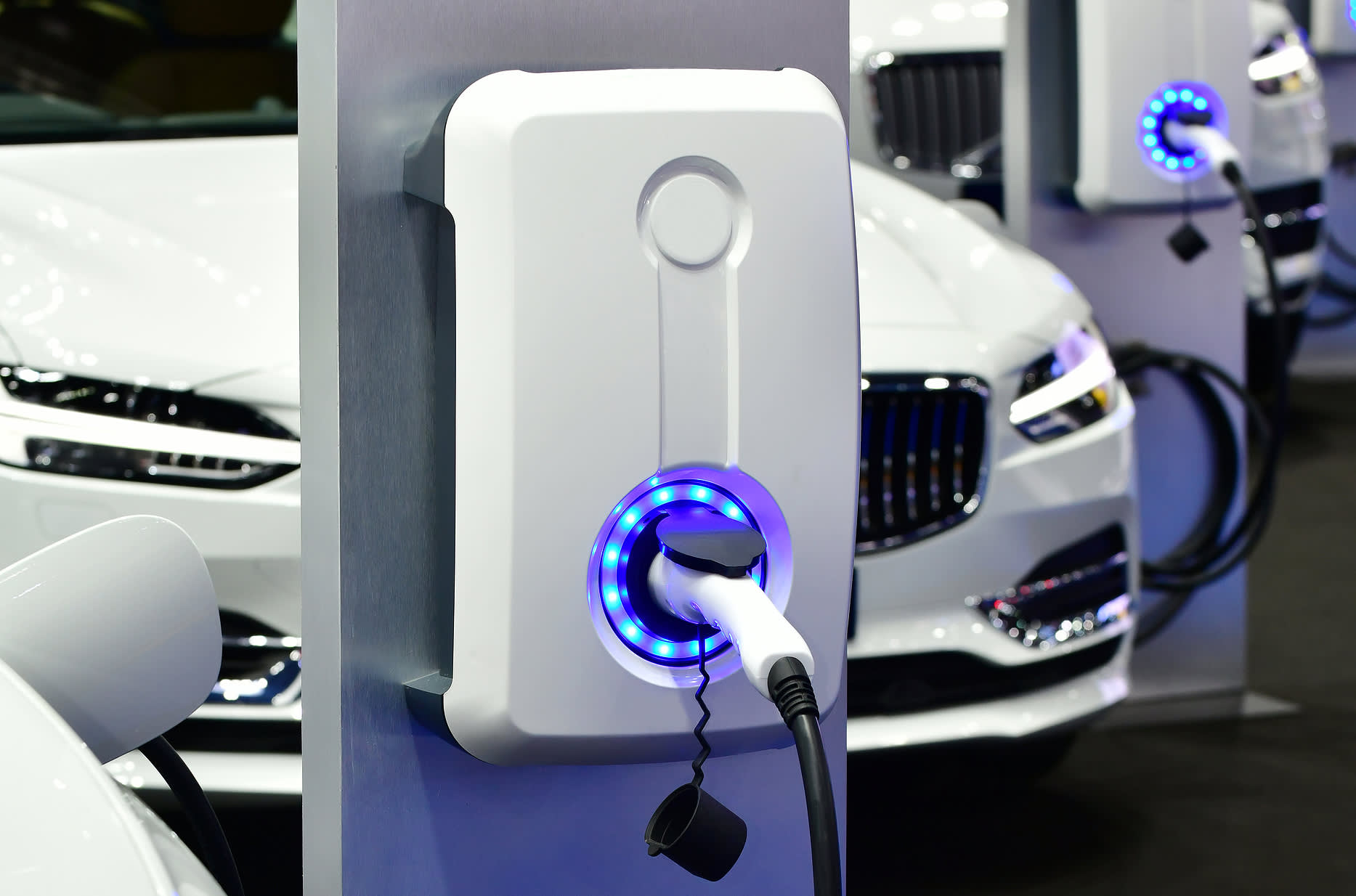What speed charger do I need for my EV fleet?
When it comes to EV fleet charging, faster’s not always better.
The fastest charging speeds will play an important part in the uptake of electric vehicles (EVs), but they’ll be part of a broader mix.
That’s because ‘rapid’ – and the fastest ‘fast’ – chargers aren’t always the most appropriate, or most cost-effective, choice. Different organisations will have different needs, and they’ll need a range of chargers to meet them.

The need for speed
The two categories of charger above – ‘rapid’ and ‘fast’ – relate to charging speed and are the ones most commonly available to organisations. We base the measurement of charging speed (in kilowatts – kW) on the power charge stations can discharge. (‘Slow’ charging points are effectively little more than plug sockets, and not something we’d ever recommend for fleet use.)
Rapid chargers
- Typically DC (direct current)
- Power output is 50kW+
- Common connectors are CCS and CHAdeMO
Fast chargers
- Typically AC (alternating current)
- Power output ranges from 7 to 22kW
- Common connector is Type 2
How long does it take to charge an EV?
Charging an empty EV battery to 100% charge takes around 10 hours for a 7kW ‘fast’ charger. For a 22kW charger, it takes more like two-and-a-half hours (see example in bold, below).
‘Rapid’ charging points are available at motorway service stations. They’re useful in these locations, as they reduce wait times and prevent journey delays, but they come at a cost premium.
If your fleet’s always busy, or your drivers need to cover long distances quickly, you may find that ‘rapid’ chargers are an ideal solution.
Maybe fast is fast enough
However, if most of your EVs are only in use during limited working hours, and last a full day on a single charge, then ‘fast’ charging might be better.
‘Fast’ charging is best for vehicles that are stationary overnight. The longer charging period shouldn’t affect available charge when you need it, and you’ll also benefit from off-peak power prices.
7-22kWh charging can help conserve your EVs’ battery lives too, as it keeps temperatures lower through a less rapid energy transfer.
If your chargers are using AC ('fast’ chargers usually are), then the speed at which they’re able to charge vehicles also depends on the relevant vehicle’s spec. Vehicles’ on-board chargers – as well as the power output of the charge point – determine the rate of charge possible.
So, an EV with a 7kW on-board charger, plugged in to a 22kW AC charge station, will still only charge at 7kW. This might make it unnecessary to invest in faster ‘fast’ charge stations in the first place.
We evaluate each customer’s charging requirements based on both their vehicles’ rest times and the maximum charging capacity of vehicles in their fleet. Together, this information enables us to recommend the right AC ‘fast’ charge stations for them.
Why now’s the time to act
Given that the sale of conventional internal combustion engine vehicles will be banned in the UK after 2030, now’s the time to plan for your fleet’s future.
Implementing a charging infrastructure is likely to need considerable investment. You’ll need skilled and qualified technicians to install each charge station – a process that involves groundworks to make the connection to your electricity supply.
But the Government’s Workplace Charging Scheme – and EV chargepoint grant – provide financial support for organisations willing to invest now.
And additional help’s available, too. With the complexities involved in the transition to EVs and the implementation of a tailored, future-proof charging solution, many fleet managers are turning to electrification partners for support.
Drax can help organisations of any size to make the switch to a more sustainable commercial fleet.
Every customer’s different. So, we’ll carry out a full audit to understand your fleet and operational requirements and enable us to recommend a tailored charging solution. We’ll also consider your sites’ electrical capacities and your plans for expansion to make sure your investment’s the right one now and the right one for the future.
Get in touch to find out more.
Get in touchDisclaimer
We’ve used all reasonable efforts to ensure that the content in this article is accurate, current, and complete at the date of publication. However, we make no express or implied representations or warranties regarding its accuracy, currency or completeness. We cannot accept any responsibility (to the extent permitted by law) for any loss arising directly or indirectly from the use of any content in this article, or any action taken in relying upon it.


